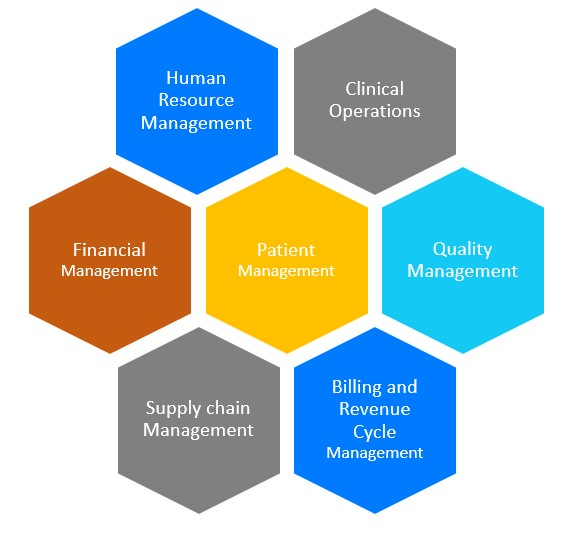What is Healthcare ERP?
A software programme called healthcare enterprise resource planning (ERP) was created especially for the healthcare sector. It connects numerous departments and operations, such as patient management, billing, supply chain management, and clinical operations, inside a healthcare business. A healthcare ERP system's objective is to increase the general effectiveness and caliber of healthcare services by streamlining processes and enabling immediate access to pertinent data.
By automating manual processes, decreasing data mistakes and duplications, and enabling real-time access to patient information, a healthcare ERP system can assist healthcare businesses in managing their operations more effectively. By delivering real-time information regarding patient problems and treatments and enhancing communication between healthcare providers, it can also assist companies in providing better patient care.
A healthcare ERP system can also assist firms in saving money by automating manual tasks, cutting waste, and improving supply chain operations.
Benefits of ERP in Healthcare Sector
Better Patient Treatment: ERP systems give healthcare professionals immediate access to patient data, allowing them to make better decisions and give better care.
Streamlined Operations: The accuracy and efficiency of healthcare operations can be increased by automating manual processes and integrating multiple divisions.
Better Data Management: ERP systems can assist healthcare firms in managing and storing patient information, lowering the risk of data duplication and error.
Improved Financial Management: ERP systems can assist healthcare firms in managing their finances more effectively, including budgeting, cost control, and billing.
Better Inventory Management: ERP systems can assist healthcare firms in optimizing their inventory management, order fulfilment, and purchasing processes.
Better Compliance: ERP systems can aid healthcare institutions in observing legal obligations, such as HIPAA and other privacy laws.
Increased Collaboration: Collaboration among healthcare professionals can be improved thanks to ERP systems, which makes it possible for them to cooperate more successfully.
How ERP can help Healthcare Sector in delivering exceptional care?

Some common modules of the healthcare business offers a complete solution for running a healthcare company, making it possible for it to deliver high-quality care more quickly.
Let's find out...How?
Patient Management: This module aids in the management of patient information, such as demographic information, medical histories, and treatment plans.
Clinical Operations: This module supports the management of patient care by healthcare professionals, including appointment scheduling, electronic medical records, and prescription management.
Billing and Revenue Cycle Management: The processing of insurance claims, patient billing, and revenue analysis are all part of the billing and revenue cycle management module's assistance to healthcare organizations in managing their finances.
Supply Chain Management: This module assists healthcare institutions in managing their inventory, purchasing, and order fulfilment processes.
Financial Management: Healthcare businesses can manage their money with the aid of this module, which also covers accounting, budgeting, and financial reporting.
Human Resources Management: This module assists healthcare firms in managing their human resources activities, such as payroll, performance management, and employee benefits.
Quality Management: The quality of patient treatment, including patient satisfaction, safety, and clinical results, can be tracked and improved by healthcare organizations with the use of the quality management module.
Conclusion
ERP (Enterprise Resource Planning) systems can significantly contribute to the expansion of the healthcare industry by enhancing the effectiveness and standard of treatment provided. ERP systems can assist healthcare firms in managing their operations more successfully by automating manual processes, decreasing data mistakes, and supplying real-time access to key information. Additionally, ERP systems can assist healthcare firms in cutting costs and offering patients better treatment through enhancing financial management, supply chain operations, and patient care.
Numerous issues, such as rising expenses, shifting laws, and growing demand for improved care, are affecting the healthcare business. However, with the aid of ERP systems, healthcare organizations can get beyond these obstacles and experience long-term success and growth.
ERP modules can provide a comprehensive solution for managing the operations of a healthcare organization, helping it to deliver high-quality care more efficiently.
We are just a call away to help you grow. Contact Us